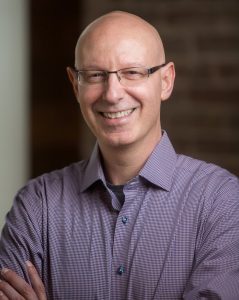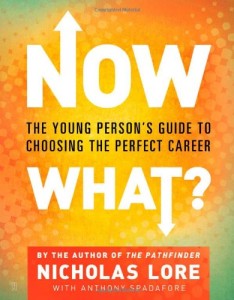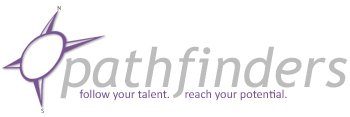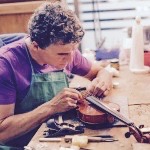Anthony Spadafore : Pathfinders Biography

My journey in career design and career coaching began back in 1989 when I woke up one morning and realized that my career as an electrical engineer was terribly unfulfilling. Although I was making good living in telecomm, I was bored out of my mind and had little desire to grow in the engineering profession. Just a few years out of college, I realized that I had landed in the wrong career and wondered how the heck I made such a bad decision.
In trying to solve my own problem, I became acutely aware of the widespread problem of career unhappiness in the workplace—I wasn’t the only one who was comfortable but miserable. I dove into the field of organizational behavior to get to the bottom of why most people dislike their work. Sure, dysfunctional leadership and organizations were at play, but something else was at the root. My hunch was that a bigger part of the problem had to do with square pegs unwittingly pounding themselves into round holes.
To test my theory, I convinced some really cool executives of a Fortune 100 company in the Washington, DC, area to let myself and a colleague try an experiment: let a couple dozen people switch careers into positions outside their field of formal training. This was a big leap into the unknown, but the CEO was fascinated by the prospect.
We called this effort “The Intrapreneur Program.” At the heart of it was creating a playful, explorative space for people to uncover their natural talents or innate abilities. Regardless of where they went to school, or what they went to school for, we let people follow their instincts as to what they would be good at (with the help of a powerful talent assessment), and gave them the support and mentoring to help them succeed.
We persuaded executives across the company to let the walls down between departments. Senior managers from every discipline volunteered as mentors. The career changers were set loose to design their own custom-fit career paths within the company. It was immediately obvious that this was something that people wanted to be a part of. All their pent up, misdirected energy was suddenly focused and unleashed. The participants started looking for ways to grow the business, improve processes and fix problems they found, largely on their own time and without financial incentives.
Interestingly, the company’s management soon came to realize that they valued people’s natural potential much more than their formal credentials, they just didn’t have a language for it. For example, there was an engineer who was really cut out to be a marketing guy. A finance guy was tinkering like an engineer in his free time, and an administrator had a knack to be a public relations spokesperson. One guy, a mid-career computer engineer, turned out to be a natural born entrepreneur; his proposal and project brought in a multi-million dollar contract and he got to run it as the program manager. After the first year of similar successes, the division general manager said to me, “What the f@#k did you do to these people.” He was astounded that so many people can be “naturals” without a formal degree or even much training; he had never seen such commitment and well-directed passion. Word got out about the project and the HR department was suddenly swamped with calls for career change help. It blew their minds that so many employees were willing to admit, “I think I’m in the wrong career.”
Our work was groundbreaking and was written up in a feature article for Training and Development Magazine called “The Search For Meaning at Work.” From there, my career path took a big turn. My mentors went to bat and opened doors to let me create a position as the company’s first career change consultant. I completed transformed my engineering career into something I made up for myself. But eventually, even that wasn’t enough. I wanted to work one-on-one with individuals to teach them how to make sound career choices and design authentic, purposeful, and fulfilling lives.

Through my career coaching work, I discovered why very smart people are so bad at picking careers that will make them happy. Without the know-how and a structured process to make intentional, well-informed choices, many people say they never really chose their career—they haphazardly fell into it. Most of the people I’ve helped followed common rules of thumb to guide their career decisions: “It’ll work out later” and “I wanted my parents to be proud.” Others say they did the “practical thing,” they were looking for a sure bet. I can relate to these familiar beliefs about achieving career success—I got started down that same road.
Today the problem persists; studies find that workplace engagement has gotten worse. To find a solution to the problem, I have studied and integrated the fields of human behavior, evolutionary psychology, sociobiology, neuroscience, neuroeconomics, behavioral economics, and the social sciences to develop ways to effectively help people understand what they are—by nature, and how to make better long-term career and life choices.
My objective of fostering people’s innate potential was completely realized with the mentorship of Nick Lore, best-selling author and pioneer of the career coaching field. He invented the idea that you can custom “design” your career back in the early 80s. In 2005, Nick invited me to co-write his second book, Now What?: A Young Person’s Guide to Choosing the Perfect Career, where I brought in my systems engineering background to further develop the career design process. I also served as a consultant on both editions of his first book, The Pathfinder.
Today, Charlottesville, VA-based Pathfinders is rated by colleagues as one of the best career coaching firms in Northern Virginia and the Washington, DC, area. I coach clients from all over the world to design and choose a career they’ll excel in. I spend my days conducting research for my next book, consulting, speaking, and writing career advice articles. It’s a path I can truly call my own.
Cheers,
Anthony A. Spadafore, January 2024
Charlottesville, VA
» Contact

Pathfinders is an established independent associate of Rockport Institute, a small team of pioneers committed to developing world-class career choice technology.



